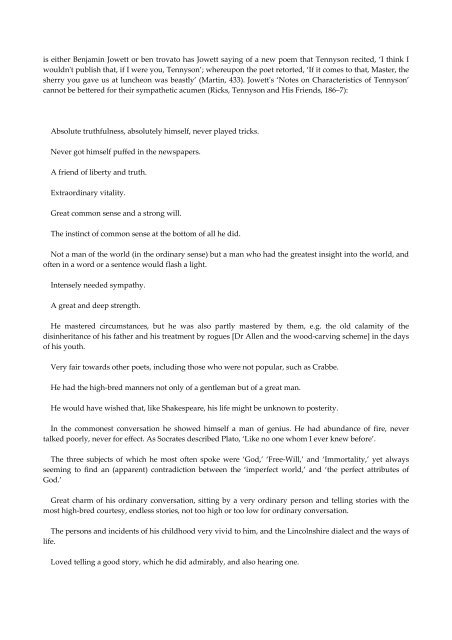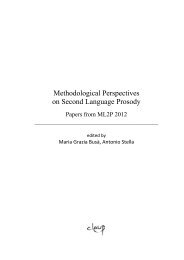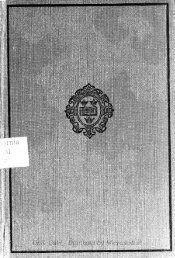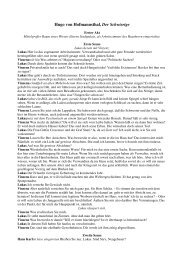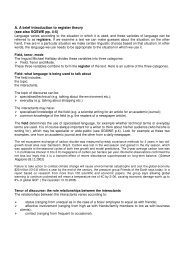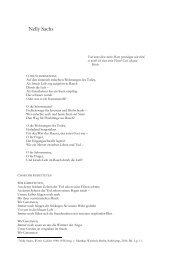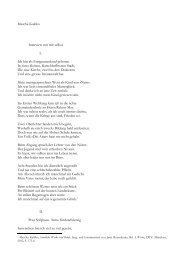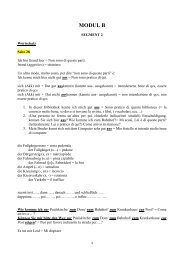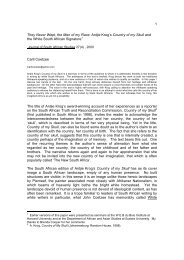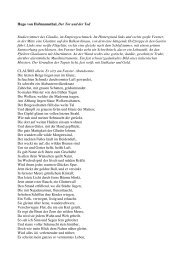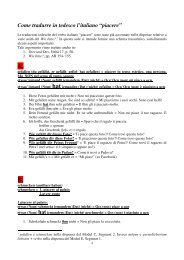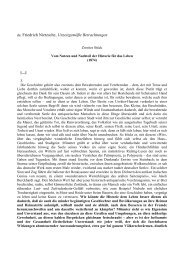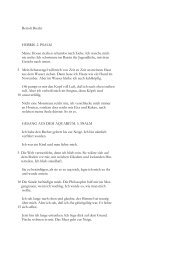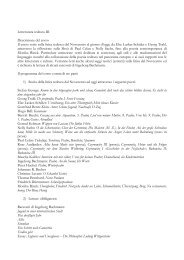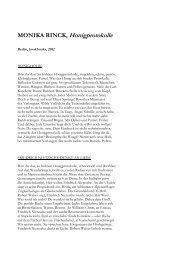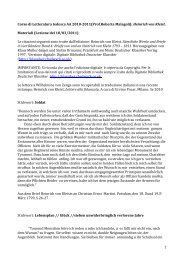The lives of the poets from The Dictionary of National Biography ...
The lives of the poets from The Dictionary of National Biography ...
The lives of the poets from The Dictionary of National Biography ...
You also want an ePaper? Increase the reach of your titles
YUMPU automatically turns print PDFs into web optimized ePapers that Google loves.
is ei<strong>the</strong>r Benjamin Jowett or ben trovato has Jowett saying <strong>of</strong> a new poem that Tennyson recited, ‘I think I<br />
wouldnʹt publish that, if I were you, Tennyson’; whereupon <strong>the</strong> poet retorted, ‘If it comes to that, Master, <strong>the</strong><br />
sherry you gave us at luncheon was beastly’ (Martin, 433). Jowettʹs ‘Notes on Characteristics <strong>of</strong> Tennyson’<br />
cannot be bettered for <strong>the</strong>ir sympa<strong>the</strong>tic acumen (Ricks, Tennyson and His Friends, 186–7):<br />
Absolute truthfulness, absolutely himself, never played tricks.<br />
Never got himself puffed in <strong>the</strong> newspapers.<br />
A friend <strong>of</strong> liberty and truth.<br />
Extraordinary vitality.<br />
Great common sense and a strong will.<br />
<strong>The</strong> instinct <strong>of</strong> common sense at <strong>the</strong> bottom <strong>of</strong> all he did.<br />
Not a man <strong>of</strong> <strong>the</strong> world (in <strong>the</strong> ordinary sense) but a man who had <strong>the</strong> greatest insight into <strong>the</strong> world, and<br />
<strong>of</strong>ten in a word or a sentence would flash a light.<br />
Intensely needed sympathy.<br />
A great and deep strength.<br />
He mastered circumstances, but he was also partly mastered by <strong>the</strong>m, e.g. <strong>the</strong> old calamity <strong>of</strong> <strong>the</strong><br />
disinheritance <strong>of</strong> his fa<strong>the</strong>r and his treatment by rogues [Dr Allen and <strong>the</strong> wood‐carving scheme] in <strong>the</strong> days<br />
<strong>of</strong> his youth.<br />
Very fair towards o<strong>the</strong>r <strong>poets</strong>, including those who were not popular, such as Crabbe.<br />
He had <strong>the</strong> high‐bred manners not only <strong>of</strong> a gentleman but <strong>of</strong> a great man.<br />
He would have wished that, like Shakespeare, his life might be unknown to posterity.<br />
In <strong>the</strong> commonest conversation he showed himself a man <strong>of</strong> genius. He had abundance <strong>of</strong> fire, never<br />
talked poorly, never for effect. As Socrates described Plato, ‘Like no one whom I ever knew before’.<br />
<strong>The</strong> three subjects <strong>of</strong> which he most <strong>of</strong>ten spoke were ‘God,’ ‘Free‐Will,’ and ‘Immortality,’ yet always<br />
seeming to find an (apparent) contradiction between <strong>the</strong> ‘imperfect world,’ and ‘<strong>the</strong> perfect attributes <strong>of</strong><br />
God.’<br />
Great charm <strong>of</strong> his ordinary conversation, sitting by a very ordinary person and telling stories with <strong>the</strong><br />
most high‐bred courtesy, endless stories, not too high or too low for ordinary conversation.<br />
<strong>The</strong> persons and incidents <strong>of</strong> his childhood very vivid to him, and <strong>the</strong> Lincolnshire dialect and <strong>the</strong> ways <strong>of</strong><br />
life.<br />
Loved telling a good story, which he did admirably, and also hearing one.


